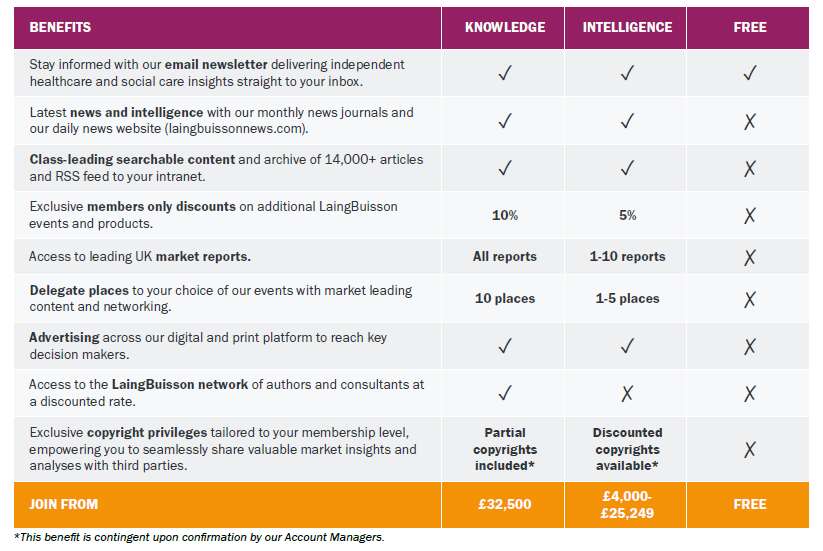Adult Specialist Care market robust in the face of Covid-19
LaingBuisson has published the 4th edition of its industry standard Adult Specialist Care UK Market Report.
Written in the first months of the coronavirus pandemic, the report reveals a sector that has stood up well to the challenges presented by Covid-19. While the costs of additional PPE and infection control are still being counted, the pandemic is not posing the same existential threat to adult specialist care as faced by older people’s care. In this sector, focused on caring for younger adults with learning difficulties, mental health issues and acquired brain injury, the impact of loss of business because of deaths and fewer new admissions has been limited.
The report also looks at the potential for the market resulting from Covid-19. On one hand the crisis may give rise to medium to long term funding challenges. While the Government had committed to addressing the issue of social care funding prior to the pandemic, the impact on the wider economy and the increase in government borrowing is likely to mean any claims for public money will be scrutinised very closely. Although clearly a sector the government needs to prioritise, it will be just one of many essential services in line for state funding.
Positively, the experience of Covid-19 may accelerate the digitisation of social care. The likely benefits of digital record keeping and the ability to pass patient records between agencies was put in sharp relief at the height of the crisis and highlighted the need to take ‘joined up care’ beyond policy aspiration to reality.
Beyond Covid-19, the most likely existential threat to the Adult Specialist Care sector remains ‘sleep-ins’. The Supreme Court has not yet published its decision in the appeal of Tomlinson-Blake v Royal Mencap Society. If this goes against Mencap, providers may be faced with finding significant amounts of money for back payments to staff.
Report author, William Laing said:
“Adult specialist care has demonstrated that it among the most robust social care sectors. While this is in no small measure attributable to public willingness to see the lifetime costs of some of the most vulnerable in our society covered, it has ridden out the storm of Covid-19 well. Staffing levels returned to normal quickly and this sector did not experience the same negative impact as a result of a higher than usual number of deaths or reduction in admissions. It, moreover, continues to be attractive to investors, offering as it does relatively safe, long-term, index-linked returns and this is important given the predominance of the independent sector in service provision to this highly fragmented market. Adult specialist care would likely receive a further boost if it were to adapt well to the forthcoming digital revolution and gain from the efficiencies of being a pioneer of truly joined up care.
“While the sector is not without its risks, the most immediate being the long-awaited ruling from the Supreme Court on sleep-ins, as a whole it performs strongly and has shown its ability to respond flexibly in the face of a crisis.”







